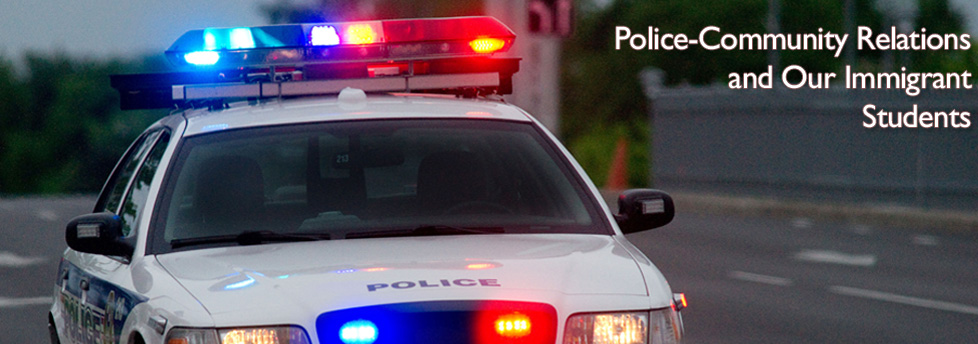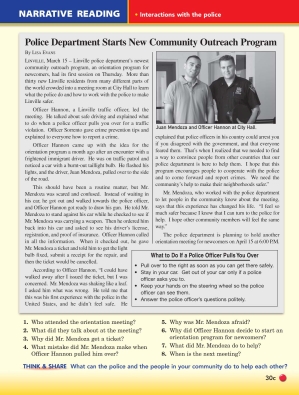


In the wake of the 2014 grand jury decisions in Ferguson, Missouri, and New York City and the protests and tension that have followed, many of our immigrant students are expressing concern about issues of law enforcement in their communities. These concerns vary widely based on students’ previous experiences with the police in their countries of origin and their current experiences with the justice system in the United States––experiences that can vary from state to state and from one locality to another based on requirements for issuing driver’s licenses, local cooperation with federal immigration enforcement such as the former Secure Communities program, the presence of bilingual personnel in police departments, and many other factors. Here's a story that can prompt some critical classroom conversations about police-community relations.
A Traffic Stop Almost Goes Wrong
The officer was on traffic patrol and noticed a car with a burnt-out taillight bulb. He flashed his lights, and the driver, Juan Mendoza, pulled over to the side of the road. This should have been a routine matter, but Mr. Mendoza was scared and confused. Instead of waiting in his car, he got out and walked toward the police officer, and the officer got ready to draw his gun. He told Mr. Mendoza to stand against his car while he checked to see if Mr. Mendoza was carrying a weapon. Then he ordered him back into his car and asked to see his driver’s license, registration, and proof of insurance. The officer called in all the information. When it checked out, he gave Mr. Mendoza a ticket and told him to get the light bulb fixed, submit a receipt for the repair, and then the ticket would be cancelled.
A New Community Outreach Program Is Born
According to the officer, "I could have walked away after I issued the ticket, but I was concerned. Mr. Mendoza was shaking like a leaf. I asked him what was wrong. He told me that this was his first experience with the police in the United States, and he didn't feel safe. He explained that police officers in his country could arrest you if you disagreed with the government, and that everyone feared them. That's when I realized that we needed to find a way to convince people from other countries that our police department is here to help them."
As a result, the officer helped his police department establish a new community outreach program that offers orientation sessions for newcomers to their city from around the world. Sessions include driver safety, crime prevention tips, and how to report a crime.
The incident described here is fictional, but it is based on true events. It appears in a lesson about interactions with the police in Side by Side Plus Book 4. The lesson includes a fictional newspaper article, reading comprehension questions, a sidebar with tips on what to do if pulled over for a traffic violation, and a prompt for a classroom discussion about community relations with law enforcement.
You are welcome to use the lesson in your classroom. I hope it offers some useful information and perhaps stimulates important classroom conversations about community/police relations, public safety, and the justice system as seen through the eyes of your students.
Publisher's Note:
Side by Side Plus is a four-level language proficiency program specially designed for adult learners.
Bill posts updates on language learning, literacy, and citizenship education at: https://www.facebook.com/bill.bliss.usa
